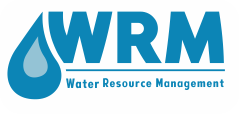Water and Wastewater System Contract Operations

City of Burlington Water Treatment Plant
There is often a bit of confusion over what we do at WRM. This post will hopefully clarify what we mean by water and wastewater system contract operations.
The focus will be on New Jersey, since that is where WRM primarily operates, but the concepts will be mostly translatable to other states.
Water
The NJ Safe Drinking Water Act regulates the collection, treatment, monitoring, storage,and distribution of potable water. It places restrictions and safeguards on systems that serve multiple customers to make sure, you guessed it, the water is safe. It does not apply to single family dwellings with their own well. Each treatment system is licensed, as well as each distribution system. There are levels of license for each system depending on the complexity and population size. Treatment systems are classified as T-1, T-2, T-3, and T-4 sites with T-4 being the largest and most complex. Distribution systems (think the pipes in the ground that deliver water from the treatment plant to your home) are classified as W-1, W-2, W-3, and W-4 sites.
Example
Burlington City has a T-4 surface water treatment plant and a W-2 distribution system that serves 10,000 customers.
Sewer
There are several NJ regulations that regulate the collection and treatment of wastewater, most notably the New Jersey Pollutant Discharge Elimination System (NJPDES). NJPDES ensures the wastewater collected from your toilets, sinks, and showers is clean enough to drink before it is discharged back into the environment. Collections systems are issued permits with a “C” designation and the treatment facilities are issued permits with “S” designations. The same 1 through 4 levels apply.
Licensed Operations
The NJDEP monitors and issues violations, when necessary, to ensure compliance with these regulations. They also require a licensed operator to directly oversee each permitted system. The State requires a mixture of formal education and direct operating experience, as well passing examinations, before issuing licenses for T, W, C, and S operations. Operators must understand geometry, chemistry, biology, mechanics, and local/federal regulations.
The owners of some systems do not have the requisite knowledge and experience to operate their systems. They contract their operations to firms such as WRM with the expertise to produce and transport safe/clean water. WRM is often more cost-effective than employing in-house personnel as well.
Summary
That was quite a few words, so here is the single sentence version:
Water and wastewater systems require a licensed operator, and often those services are outsourced as “contract operations.”
Hope you learned something. Feel free to check out the rest of the site for additional information or check out this link.
-Dan

You must be logged in to post a comment.